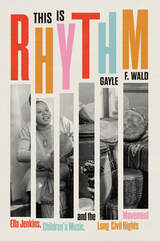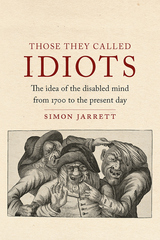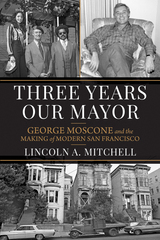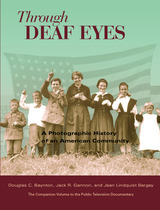4 books about Formal languages
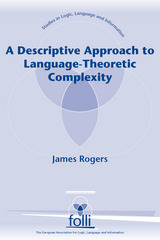
A Descriptive Approach to Language-Theoretic Complexity
James Rogers
CSLI, 1998
Early formal specifications of natural language syntax were quite closely connected to the notion of abstract machines for computing them. This provided a very natural means of gauging the relative difficulty of processing various constructions, as well as offering some insight into the abstract properties of the human language faculty. More recently, this approach has been superseded by one in which languages are specified in terms of systems of constraints on the structure of their sentences. This has made complexity results difficult to obtain. This book introduces a way of obtaining such results. It presents a natural and quite general means of expressing constraints on the structure of trees and shows that the languages that can be specified by systems of such constraints are exactly those computable by a particular standard class of abstract machines. Thus the difficulty of processing a construction can be reduced to the difficulty of expressing the constraints that specify it. The technique is demonstrated by applying it to a fairly complete treatment of English within the framework of Government and Binding theory, with the result of showing that its complexity is much less than has heretofore been assumed.
[more]
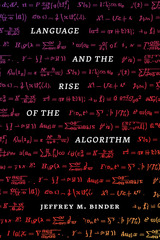
Language and the Rise of the Algorithm
Jeffrey M. Binder
University of Chicago Press, 2022
A wide-ranging history of the algorithm.
Bringing together the histories of mathematics, computer science, and linguistic thought, Language and the Rise of the Algorithm reveals how recent developments in artificial intelligence are reopening an issue that troubled mathematicians well before the computer age: How do you draw the line between computational rules and the complexities of making systems comprehensible to people? By attending to this question, we come to see that the modern idea of the algorithm is implicated in a long history of attempts to maintain a disciplinary boundary separating technical knowledge from the languages people speak day to day.
Here Jeffrey M. Binder offers a compelling tour of four visions of universal computation that addressed this issue in very different ways: G. W. Leibniz’s calculus ratiocinator; a universal algebra scheme Nicolas de Condorcet designed during the French Revolution; George Boole’s nineteenth-century logic system; and the early programming language ALGOL, short for algorithmic language. These episodes show that symbolic computation has repeatedly become entangled in debates about the nature of communication. Machine learning, in its increasing dependence on words, erodes the line between technical and everyday language, revealing the urgent stakes underlying this boundary.
The idea of the algorithm is a levee holding back the social complexity of language, and it is about to break. This book is about the flood that inspired its construction.
Bringing together the histories of mathematics, computer science, and linguistic thought, Language and the Rise of the Algorithm reveals how recent developments in artificial intelligence are reopening an issue that troubled mathematicians well before the computer age: How do you draw the line between computational rules and the complexities of making systems comprehensible to people? By attending to this question, we come to see that the modern idea of the algorithm is implicated in a long history of attempts to maintain a disciplinary boundary separating technical knowledge from the languages people speak day to day.
Here Jeffrey M. Binder offers a compelling tour of four visions of universal computation that addressed this issue in very different ways: G. W. Leibniz’s calculus ratiocinator; a universal algebra scheme Nicolas de Condorcet designed during the French Revolution; George Boole’s nineteenth-century logic system; and the early programming language ALGOL, short for algorithmic language. These episodes show that symbolic computation has repeatedly become entangled in debates about the nature of communication. Machine learning, in its increasing dependence on words, erodes the line between technical and everyday language, revealing the urgent stakes underlying this boundary.
The idea of the algorithm is a levee holding back the social complexity of language, and it is about to break. This book is about the flood that inspired its construction.
[more]
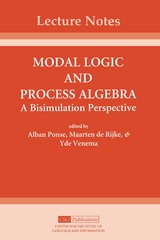
Modal Logic and Process Algebra
Edited by Alban Ponse, Maarten de Rijke, and Yde Venema
CSLI, 1995
Labelled transition systems are mathematical models for dynamic behaviour, or processes, and thus form a research field of common interest to logicians and theoretical computer scientists. In computer science, this notion is a fundamental one in the formal analysis of programming languages, in particular in process theory. In modal logic, transition systems are the central object of study under the name of Kripke models. This volume collects a number of research papers on modal logic and process theory. Its unifying theme is the notion of a bisimulation. Bisimulations are relations over transition systems, and provide a key tool in identifying the processes represented by these structures. The volume offers an up-to-date overview of perspectives on labeled transition systems and bisimulations.
[more]
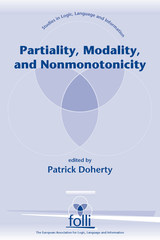
Partiality, Modality and Nonmonotonicity
Patrick Doherty
CSLI, 1996
This edited volume of articles provides a state-of-the-art description of research in logic-based approaches to knowledge representation which combines approaches to reasoning with incomplete information that include partial, modal, and nonmonotonic logics. The collection contains two parts: foundations and case studies. The foundations section provides a general overview of partiality, multi-valued logics, use of modal logic to model partiality and resource-limited inference, and an integration of partial and modal logics. The case studies section provides specific studies of issues raised in the foundations section. Several of the case studies integrate modal and partial modal logics with nonmonotonic logics. Both theoretical and practical aspects of such integration are considered. Knowledge representation issues such as default reasoning, theories of action and change, reason maintenance, awareness, and automation of nonmonotonic reasoning are covered.
[more]
READERS
Browse our collection.
PUBLISHERS
See BiblioVault's publisher services.
STUDENT SERVICES
Files for college accessibility offices.
UChicago Accessibility Resources
home | accessibility | search | about | contact us
BiblioVault ® 2001 - 2025
The University of Chicago Press


